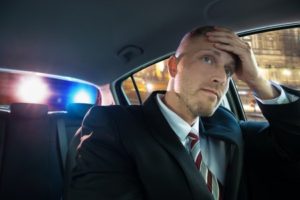 “When N.J.S.A. 2C:40-26 was enacted in 2009, the Senate intended to lodge ‘criminal penalties for persons whose drivers’ licenses are suspended for certain drunk driving offenses and who, while under suspension for those offenses, unlawfully operate a motor vehicle.'” The phrase “certain drunk driving offenses” is not limited to one category of offense. It necessarily refers to more than DWI. Otherwise it would have said the intent of the law was to create “criminal penalties for persons whose drivers’ licenses are suspended for DWI and who, while under suspension for that offense, unlawfully operate a motor vehicle.”
“When N.J.S.A. 2C:40-26 was enacted in 2009, the Senate intended to lodge ‘criminal penalties for persons whose drivers’ licenses are suspended for certain drunk driving offenses and who, while under suspension for those offenses, unlawfully operate a motor vehicle.'” The phrase “certain drunk driving offenses” is not limited to one category of offense. It necessarily refers to more than DWI. Otherwise it would have said the intent of the law was to create “criminal penalties for persons whose drivers’ licenses are suspended for DWI and who, while under suspension for that offense, unlawfully operate a motor vehicle.”
Additionally, the Sponsor’s Statement to S. 2939 (June 15, 2009) explained that N.J.S.A. 2C:40-26(b) made it a fourth-degree crime for “a person who is convicted of a second or subsequent driving while intoxicated or refusal offense” to operate a motor vehicle during a period of license suspension “for that second offense.” After the specific mention of DWI and refusal, the language states: “that second offense,” effectively referring to both types of offenses interchangeably as possibilities. The legislative intent is therefore clear–the word “either” is imported into the use of “or” in this statute. Since the statute is not ambiguous, and the pertinent language does not lend itself to a different reasonable interpretation, the rule of lenity does not apply.
It is noteworthy that the statute, unlike most fourth-degree crimes, imposes a mandatory 180-day jail sentence. That speaks to the legislative purpose of addressing the problem of drunk driving by imposing significant sanctions, tailored to maximize the deterrent impact. We affirm defendant’s conviction and vacate the stay of the sentence.
The Legislature’s and Supreme court’s short-hand use of “drunk driving” to refer to DUIs is problematic. It overlooks intoxication caused by substances other than alcohol. At the same time, the Court holds that if the Legislature intended something other than the plain language that they used, they would have used different language. Under that rationale, those who operate motor vehicles under the influence of substances other than alcohol would not be subject to the enhanced criminal penalties under 2C:40-26(b). That is clearly not the case.
